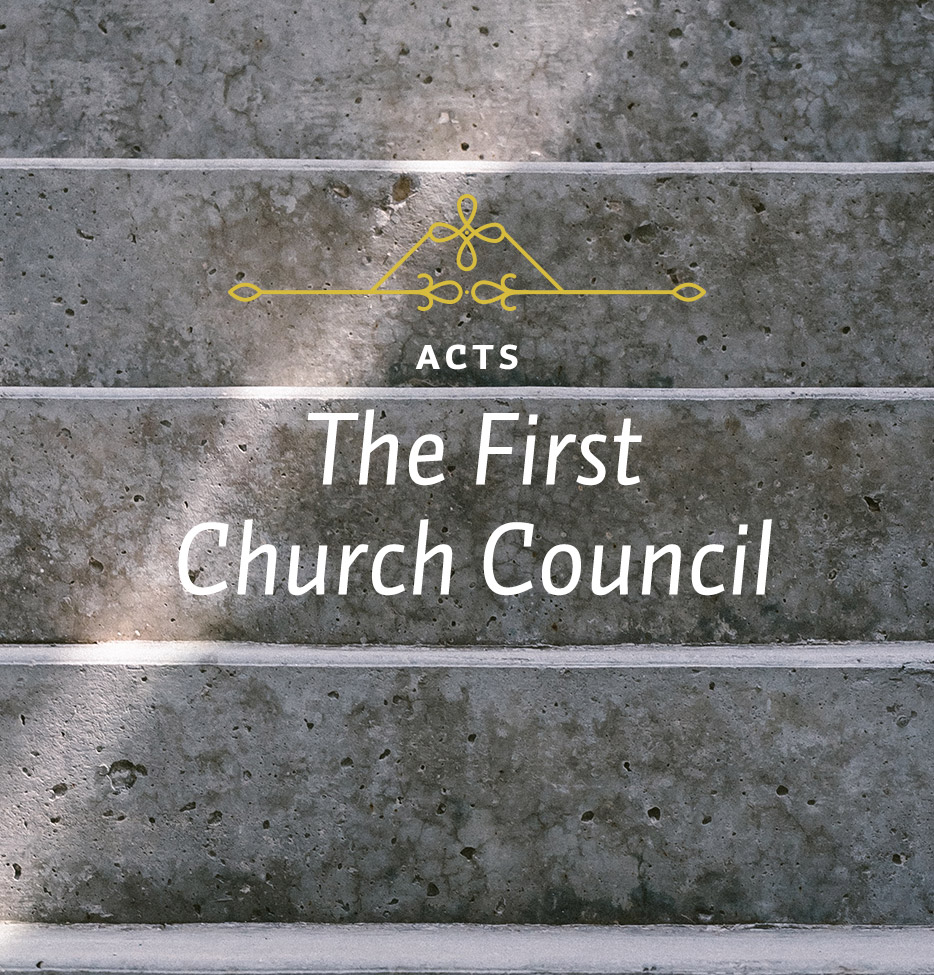Luke introduces the debate in verse 6, saying: “The apostles and elders met to consider this question.” I do not know if Luke was deliberately understating what went on, but he was at least presenting the public side of the debate in contrast to what we know from Paul’s letter to the Galatians to have gone on behind the scenes. What Luke does not tell us is that when Paul went to Jerusalem, he took Titus along. Titus was a Gentile and therefore a representative of the many Gentiles who were uncircumcised and yet had believed the Gospel. Paul refused to have Titus circumcised (Gal. 2:3), even though many important people—Paul calls them “those who seemed to be important”—tried to persuade him to change his position.
If you have ever been in church circles, you know how it is. There is an issue to be decided. But there are people who are afraid of offending those who are on the wrong side. These therefore always try to work out a compromise that will satisfy everyone but actually satisfies no one. That must have happened in Jerusalem.
The leaders must have called Paul and Barnabas in, knowing that Paul was not a timid soul. They must have said to him, “Paul, you are a giant of the faith. You are the church’s chief theologian. You outshine all of us. But you don’t know Jerusalem the way we do. If you insist on exempting the Gentiles from circumcision as a matter of principle, you are going to divide the church. That must not happen. You are right in your position, of course. But what we recommend is that you show a gracious spirit and have this young Gentile believer, Titus, circumcised. From your point of view that can mean whatever you want it to mean. You can say, ‘It is just to keep peace in the church.’ But from the viewpoint of our weaker brethren you will be signifying that we are all anxious to uphold the law of Moses.”
In Galatians Paul tells how he responded. He says, “We did not give in to them for a moment, so that the truth of the gospel might remain with you” (Gal. 2:5). In other words, Paul understood that forcing circumcision on the Gentiles involved the very essence of the Gospel. And if the choice was to be between the truth of the Gospel and harmony in the Church, then he was for the truth of the Gospel. The Church can live with disharmony. It is unfortunate when it occurs, of course. We do not want it. We try to avoid it when we can, but we can live with it. What we cannot live with is the destruction of the Gospel. So Paul made every effort to preserve it.
There is one other thing Paul says that is worth adding to what Luke communicates in Acts. It is the way Paul speaks of the Jerusalem leaders. He calls them “those reputed to be pillars” (Gal. 2:9), referring to James, Peter, and John specifically. Earlier he wrote of “those who seemed to be leaders” (v. 2), and in one place he says, “As for those who seemed to be important—whatever they were makes no difference to me; God does not judge by external appearance—those men added nothing to my message” (v. 6).
These statements suggest that Paul was pressured to compromise by the very people who should have been most concerned to uphold the truth of Christianity, namely, James, the Lord’s brother and the chairman of the council; Peter, the “rock”; and John, the beloved disciple. And if that is so, then the danger to the Gospel was actually much greater than Luke suggests in his rather formal report of the proceedings. The Gospel was in danger of being lost, and for a time at least only Paul and his companions stood defending it.
Someone might think that Luke was misrepresenting the council in the way he presents it, if what Paul writes in Galatians is true. But that does not follow. Luke tells us not what went on behind the scenes but what went on in public. The wonderful thing, the thing he emphasizes, is that in spite of the weakness of these “pillar” apostles in private (if what I have suggested was the case), in public, after they had discussed the matter in council and had prayed for God’s guidance and blessing in their deliberations, God led them to stand together and preserve the Gospel.






